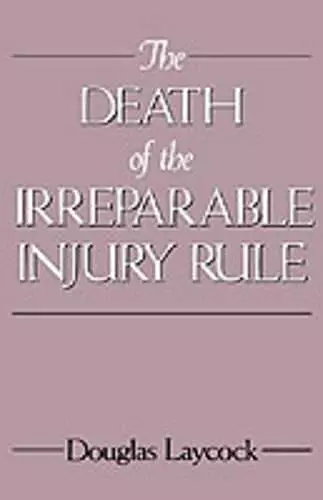The Death of the Irreparable Injury Rule
Format:Hardback
Publisher:Oxford University Press Inc
Published:11th Apr '91
Currently unavailable, and unfortunately no date known when it will be back

The irreparable injury rule, a fixture of Anglo-American law, has been the subject of much recent scholarly debate. The rule asserts that courts should not prevent a potential wrongdoer from causing harm unless the resulting damage would be `irreparable' because the victim could not be compensated monetarily for it. Drawing on an analysis of hundreds of randomly selected cases, Douglas Laycock argues that the rule is defunct since it no longer constrains courts' choice of remedy. Focusing on what courts do rather than what they say, Laycock proposes new injury rules based on actual practice and reconceives the law of remedies and the relationship between law and equity, two of the great divisions of Anglo-American civil law.
`it is a very scholarly and readable examination of the way in which a lack of judicial courage ... has hampered the speedy development of a more practically effective law of remedies in the United States.' The Cambridge Law Journal
'a perceptive work, and a number of features make it well worth reading ... it provides a very useful source ... of recent American cases taking unorthodox views of specific remedies ... This is an interesting, well-argued and thoughtful book. This reviewer, for one, whole-heartedly recommends it.' Andrew Tettenborn, Pembroke College, Cambridge, Civil Justice Quarterly, January 1992
- Winner of Winner of the Scribes Annual Book Award 1991.
ISBN: 9780195063561
Dimensions: 216mm x 148mm x 33mm
Weight: 570g
382 pages